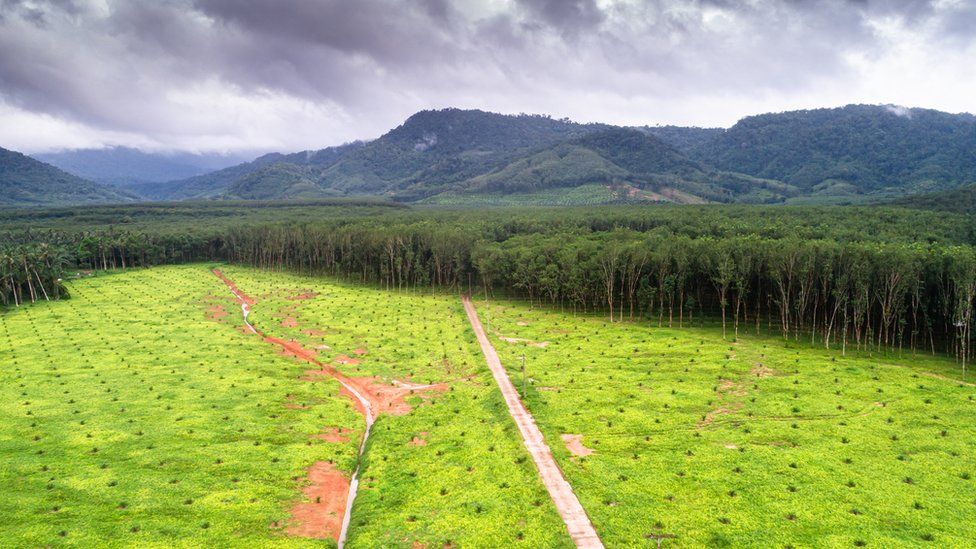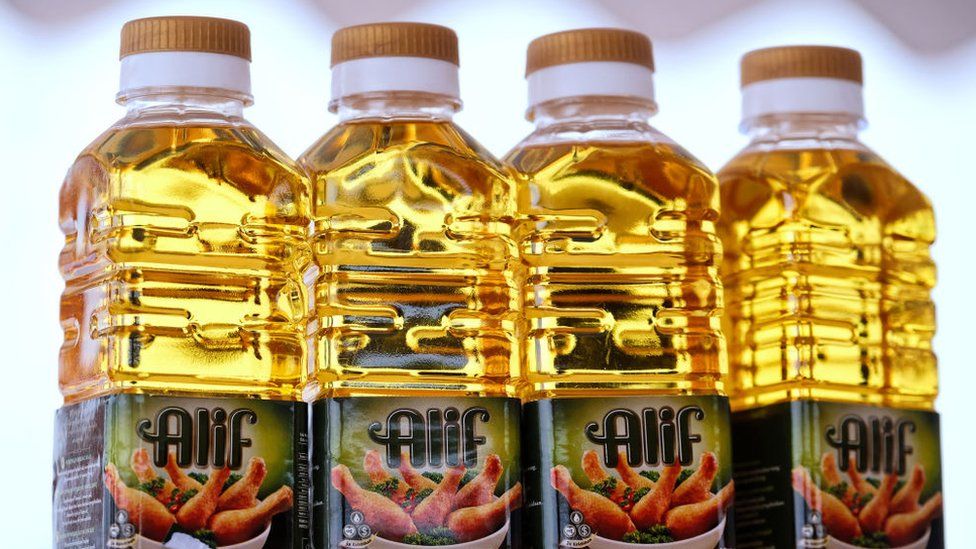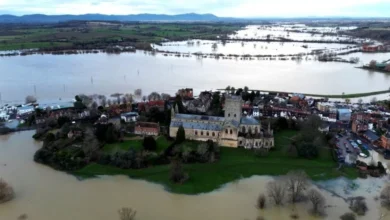‘This could be the holy grail to replace palm oil’ – research team

A Scottish research team believe they may have produced the “holy grail” alternative to palm oil.
It is estimated that almost half of all food and cosmetic products on supermarket shelves contain palm oil.
The huge demand has led to significant deforestation in areas where oil palm trees can grow near the equator.
Food experts at Queen Margaret University (QMU) in Edinburgh say their new 100% plant-based ingredient is 70% better for the environment.
And with 80% less saturated fat and 30% fewer calories, they are also hailing PALM-ALT as a significantly healthier option.
Catriona Liddle, one of the lead developers on the QMU team, said: “It’s the holy grail to replace it and still have exactly the same end result in product – to taste the same and have the texture the same – and we’ve done that.
“We’ve put it through some special sensory testing to see if a panel can tell the difference between our product and traditional palm shortening, and they can’t.”
The new PALM-ALT product is described as having a mayonnaise-style consistency.
It is palm and coconut-free and has no added flavourings, sugar, sweeteners, preservatives or colourings.
It is made from a by-product from the linseed industry, plus natural fibre and rapeseed oil.
Palm oil remains the world’s most-produced vegetable oil, accounting for 40% of the total, according to the World Wide Fund for Nature (WWF).
It is hugely popular with food and cosmetics firms because it is so useful. Odourless, tasteless and colourless, it does not alter the smell, taste or look of products.
Instead, it adds a smooth texture, and works as a natural preservative. And it maintains its properties under high temperatures, also making it ideal for cooking with.
It is used in everything from chocolate to shampoo, pizza, toothpaste and deodorant.

The use of the land for palm oil cultivation, 85% of which is in Indonesia and Malaysia, has increased almost nine-fold from 3.3 million hectares (eight million acres) in 1970 to 28.7 million hectares in 2020.
In financial terms, one report valued the worldwide palm oil industry at $62.3bn (£51.2bn) in 2021. And such is the continuing growth in demand, this figure is expected to increase to $75.7bn by 2028.
Catriona Liddle told BBC Radio’s Good Morning Scotland programme: “For the food industry, palm oil is used as a fat but it gives you texture and good shelf-life.
“Particularly in baking products, it’s almost an irreplaceable ingredient because it’s so functional.”
Irreplaceable until now?
But could that be about to the change, with the QMU team having an international patent for PALM-ALT pending and discussions set to begin with prospective manufacturers.
“We’ve started off with bakery products – bread, cakes, biscuits – all the things that everybody loves to eat but are not terribly healthy for us,” Ms Liddle said.
“We’ve created a product that is over 80% less saturated fat and 30% less calories, so it’s a significantly healthier product than palm oil itself.
“It’s also about 70% better for the environment in terms of carbon emissions.
“Now we’re looking at having discussions with people to manufacture the product, so it’s really exciting for us.”

What is palm oil and why is it thought to be bad?

It is cheap to make and there are lots of other reasons it is used in food and other products instead of alternative oils.
But the way some palm oil is made is causing serious damage to the environment.
Palm oil comes from the fruit of the African oil palm. It is in lots of products we use – from toiletries such as shampoos and soap, to cereals and biscuits.
Environmentalists argue that the farming of oil palm trees is extremely bad for the planet.
Deforestation is when forests and trees are cut down to clear the land to use it for something else.
Palm oil production is said to have been responsible for about 8% of the world’s deforestation between 1990 and 2008.
This is because forests are burned to clear areas where people can grow oil palms – even if it is illegal.
Burning forests like this destroys the places where plants and wildlife live, meaning the area has less biodiversity.
Species such as orangutans, rhinos, elephants and tigers can be affected.










